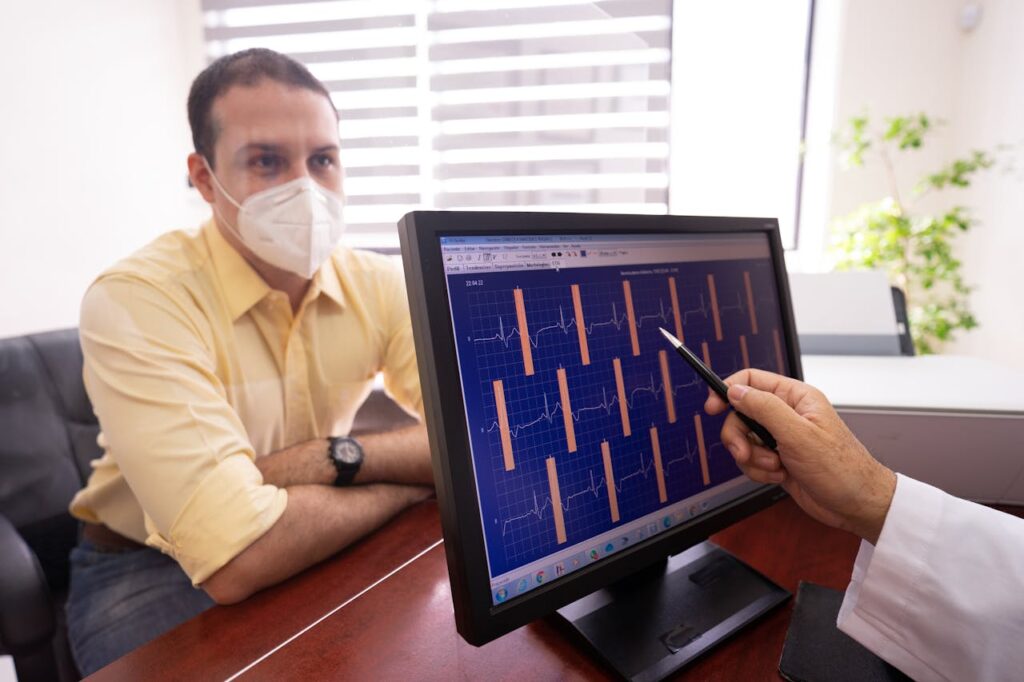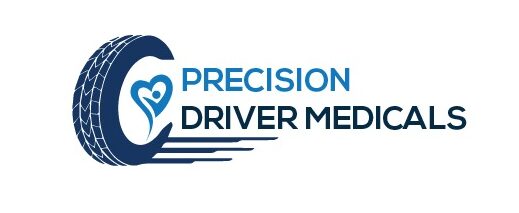Learn how heart conditions can affect your driving license in the UK. Find out DVLA requirements, medical exams, and how Precision Driver Medicals can help you stay compliant and safe on the road.
Introduction
Driving is a privilege that requires both physical and mental fitness. When it comes to heart conditions and driving license regulations in the UK, many drivers are unsure about what’s required by the DVLA (Driver and Vehicle Licensing Agency). If you have—or have ever had—a heart-related condition, you must understand your medical responsibilities before getting behind the wheel.
At Precision Driver Medicals, we specialize in driver medical assessments across the UK, helping professional and private drivers meet DVLA standards for heart conditions and driving license renewals. This guide will explain everything you need to know—from reporting requirements to fitness-to-drive assessments.
Understanding Heart Conditions and DVLA Rules
The DVLA sets clear medical guidelines to ensure drivers are safe to operate vehicles on public roads. When it comes to heart conditions and driving licenses, these rules are designed to protect both you and other road users.
If you suffer from or have been treated for a heart problem, the DVLA may need to review your case before confirming your driving eligibility. This can include:
- Heart attacks (myocardial infarction)
- Angina
- Arrhythmia (irregular heartbeat)
- Heart failure
- Cardiomyopathy
- Heart valve disease
- Coronary artery bypass graft (CABG) or angioplasty
- Implantation of a pacemaker or defibrillator (ICD)
Depending on your diagnosis, you may need to stop driving temporarily or submit a medical report to confirm that your condition is stable and well-controlled.

When You Must Notify the DVLA
One of the most critical parts of managing heart conditions and your driving license is understanding when to inform the DVLA. Failure to report can result in fines of up to £1,000 and, in severe cases, prosecution if an accident occurs.
You must notify the DVLA if:
- You have suffered a heart attack or cardiac arrest.
- You experience chest pain while driving or at rest (angina).
- You’ve had heart surgery, such as a stent, valve repair, or bypass.
- You have an implanted cardiac device (pacemaker or ICD).
- You suffer from a condition causing loss of consciousness or fainting.
- Your doctor has advised you to stop driving temporarily.
You can report your condition directly to the DVLA online or via the Form H1 (Heart Disorders), which applies to both Group 1 (cars and motorcycles) and Group 2 (lorries and buses) drivers.
How Heart Conditions Affect Different Driving License Categories
Group 1 Drivers (Cars and Motorcycles)
For most private drivers, heart conditions and driving license requirements depend on the severity and stability of the condition. In many cases, once your doctor confirms you’re stable and symptom-free, you can resume driving after a short period.
For example:
- After a mild heart attack or angioplasty, drivers may return to the road after 1 week, provided there are no complications.
- If you have a pacemaker fitted, you must usually stop driving for 1 week and then resume if cleared by your cardiologist.
- For more serious cases like an implanted defibrillator (ICD), you may need to wait 6 months or longer before driving.
Group 2 Drivers (Lorries and Buses)
Group 2 licenses require stricter medical standards because of the higher risks associated with large vehicles. If you hold an HGV, PCV, or bus license, the DVLA will often request a detailed D4 medical form and supporting reports from your cardiologist.
For most heart-related conditions, Group 2 drivers must undergo:
- Regular medical assessments (every 1–3 years)
- ECG and blood pressure checks
- Possible stress testing or echocardiograms to assess fitness
- A full review by the DVLA Medical Group before license renewal
At Precision Driver Medicals, our GMC-registered doctors can complete your D4 medical examination quickly and accurately, ensuring you remain compliant with DVLA standards.
The Role of Medical Assessments in Driving License Renewal
A key aspect of managing heart conditions and driving license renewal is undergoing the proper medical assessment. During your driver medical at Precision Driver Medicals, we will:
- Review your medical history, including heart-related diagnoses and treatments.
- Conduct a blood pressure check
- Perform an eye test (visual acuity and peripheral vision)
- Record relevant details for your D4 form (for HGV/PCV drivers).
- Provide documentation to support your DVLA medical submission
If additional tests are needed, such as ECGs or specialist reports, we’ll guide you on how to obtain them efficiently.

Common Heart Conditions That Require DVLA Notification
1. Angina
If you experience angina symptoms while at rest or during driving, you must stop driving and notify the DVLA immediately. Driving may resume only when symptoms are well-controlled.
2. Heart Attack (Myocardial Infarction)
After a heart attack, drivers usually must stop driving for a minimum of 1 week (Group 1) or 6 weeks (Group 2). Clearance from a doctor is required before resuming driving.
3. Pacemaker Installation
Following pacemaker implantation, drivers must refrain from driving for at least 1 week and inform the DVLA. Medical clearance is mandatory before returning to the road.
4. Heart Surgery (Bypass, Valve, or Transplant)
DVLA rules vary depending on the procedure. Generally, drivers can return after recovery and when the cardiologist confirms fitness to drive.
5. Arrhythmia (Irregular Heartbeat)
You must inform the DVLA if the arrhythmia causes fainting, dizziness, or blackouts. Once the condition is stabilized, driving can resume with medical approval.
How Precision Driver Medicals Can Help
At Precision Driver Medicals, we make managing your heart conditions and driving license requirements simple and stress-free. Our team of experienced GMC-registered doctors provides comprehensive driver medicals tailored for both private and commercial drivers.
Why Choose Us?
- Fast, same-day appointments available nationwide
- Affordable pricing with transparent costs
- 15-minute appointments, including eye test and blood pressure check
- Fully DVLA-compliant reports
- Friendly, professional service designed for your convenience
We support drivers with various heart conditions across the UK, helping them complete their DVLA medical assessments safely and efficiently. Whether you’re renewing an HGV, PCV, or taxi license—or simply want peace of mind about your fitness to drive—our team is here to help.
Tips to Maintain Heart Health for Safe Driving
In addition to complying with DVLA medical requirements, maintaining good cardiovascular health is key for safe driving. Here are some practical tips:
- Monitor blood pressure regularly
- Eat a balanced diet rich in fruits, vegetables, and whole grains.
- Exercise moderately (as advised by your doctor)
- Avoid smoking and excessive alcohol consumption.
- Manage stress levels through relaxation or mindfulness
- Take prescribed medication consistently and follow up with your GP.
A healthy heart not only helps you pass medical assessments but also ensures safety for yourself and others on the road.
Final Thoughts
Understanding the connection between heart conditions and driving license rules is vital for all UK drivers. The DVLA’s medical standards are designed to ensure safety, and staying compliant protects both your health and your livelihood—especially for professional drivers.
At Precision Driver Medicals, we provide convenient, affordable, and professional medical assessments to help you stay on the road legally and safely. Whether you’ve recently had a heart procedure or are managing a long-term condition, our team is ready to assist with every step of your DVLA medical process.
Top Services
- Driver Medical
- HGV/Lorry Drivers (HGV medical)
- Taxi Drivers (Hackney Carriage & Private Hire Medical)
- Private Hire
- PCV/Bus Drivers (PCV medical)
- PCO Medical
- Bus Medical Service
- Motorhome Medical
- Ambulance Medical
- Forklift Driver Medical
- TFL Medical
Top Links
10 Important Links for Driver Medicals UK
- DVLA – D4 Medical Examination Report
→ Official D4 form for HGV/PCV drivers. - DVLA – Driving Licences for Lorry, Bus and Coach Drivers
→ Requirements for becoming a lorry or bus driver. - TfL – Private Hire and Taxi Driver Medical Requirements
→ TfL’s official medical guidelines for PCO/private hire drivers. - DVLA – Eyesight Rules for Drivers
→ Legal eyesight standards for all UK drivers. - DVLA – Medical Conditions and Driving
→ Guidance on how medical conditions affect driving eligibility. - NHS – Medical Exams for Professional Drivers
→ NHS overview of driver medical exams. - Driver & Vehicle Standards Agency (DVSA)
→ Regulator for driving and vehicle safety standards in the UK. - General Medical Council (GMC)
→ Authority for registered medical professionals in the UK. - Gov.uk – Renew Driving Licence
→ Process for renewing a UK driving licence. - National Register of LGV Instructors (NRI)
→ Training and standards for LGV/HGV instructors.


